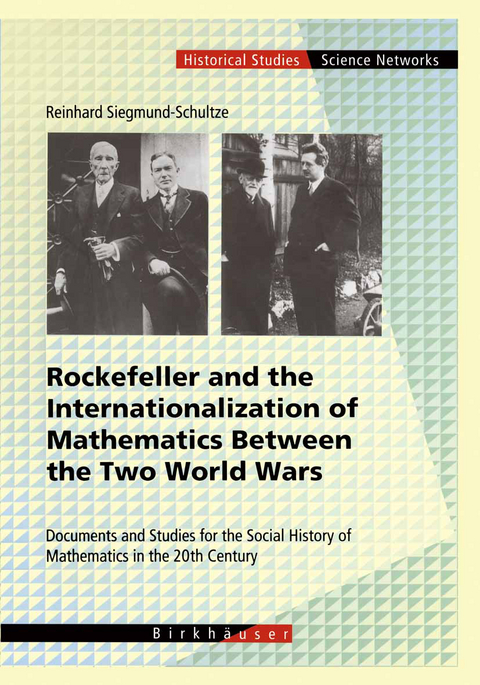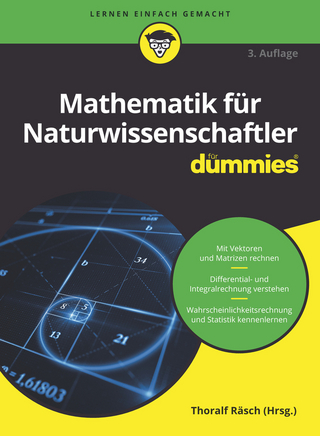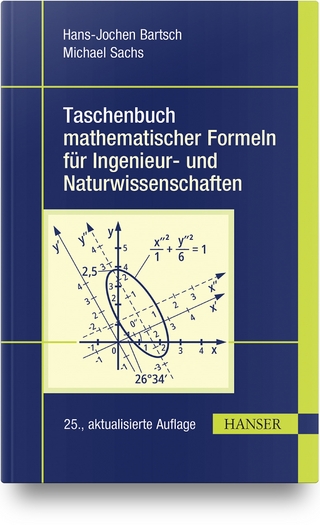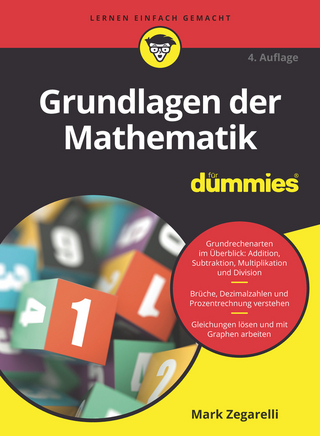
Rockefeller and the Internationalization of Mathematics Between the Two World Wars
Springer Basel (Verlag)
978-3-0348-9505-7 (ISBN)
Philanthropies funded by the Rockefeller family have been prominent in the social history of the twentieth century for their involvement in medicine and applied science. This book provides the first detailed study of their relatively brief but nonetheless influential foray into the field of mathematics. The careers of a generation of pathbreakers in modern mathematics, such as S.Banach, B.L.van der Waerden and André Weil, were decisively affected by their becoming fellows of the Rockefeller-funded International Education Board in the 1920s. To help promote cooperation between physics and mathematics Rockefeller funds supported the erection of the new Mathematical Institute in Göttingen between 1926 and 1929, while the rise of probability and mathematical statistics owes much to the creation of the Institut Henri Poincaré in Paris by American philanthropy at about the same time. This account draws upon the documented evaluation processes behind these personal and institutional involvements of philanthropies. It not only sheds light on important events in the history of mathematics and physics of the 20th century but also analyzes the comparative developments of mathematics in Europe and the United States. Several of the documents are given in their entirety as significant witnesses to the gradual shift of the centre of world mathematics to the USA. This shift was strengthened by the Nazi purge of German and European mathematics after 1933 to which the Rockefeller Foundation reacted with emergency programs that subsequently contributed to the American war effort. The general historical and political background of the events discussed in this book is the mixture of competition and cooperation between the various European countries and the USA after World War I, and the consequences of the Nazi dictatorship after 1933. Ideological positions of both the philanthropists and mathematicians mattered heavily in that process. Cultural bias in the selection of fellowsand of disciplines supported, and the economic predominance of American philanthropy, led among other things to a restriction of the programs to Europe and America, to an uneven consideration of European candidates, and to preferences for Americans. Political self-isolation of the Soviet Union contributed to an increasing alienation of that important mathematical culture from Western mathematics. By focussing on a number of national cultures the investigation aims to represent a step toward a true inter-cultural comparison in mathematics.
Dr. sc. Reinhard Siegmund-Schultze ist derzeit Privatdozent für Geschichte an der Humboldt-Universität Berlin.
I Introduction: The "Internationalization" of Mathematics and the Interests Therein of Scientists and Philanthropists.- II The Political and Economic Conditions for International Scientific Collaboration After World War I and the Situation in Mathematics.- III General Ideological and Political Positions Underlying the IEB's Activities.- IV The Practice of the Fellowship Programs of IEB (1923-1928) and RF (After 1928), and the Particular Situation of Mathematics.- V The Institute Projects in Europe 1926-1928: Göttingen, Paris, a Project Turned Down in Djursholm, and an Excursus on the Institute for Advanced Study in Princeton.- VI The Emergency Program of the RF After 1933 and Changing Attitudes of the RF Vis-À-Vis Mathematics Before the War: Mathematics Caught Between New Scientific Orientations and Catastrophic Political Developments.- VII Epilogue.- Notes.- Appendices.- 1. Proposal by the Physicists of Göttingen for Support From the IEB 1924.- 2. A Memo by English Mathematician G.H.Hardy Asking for Support for a New Journal 1924.- 3. Nikolaj Lusin's Application for a IEB Fellowship, March 27, 1926.- 4. Paul Montel (1944) on the Origin of Plans for the Institut Henri Poincare in May 1926.- 5. A Memorandum by Augustus Trowbridge (lEB) on a Meeting With ?mile Borel Concerning Plans for the Foundation of an Institute for Mathematics and Mathematical Physics in Paris (May 1926).- 6. Report by A. Trowbridge on His trip to Göttingen July 2 Through July 4, 1926.- 7. G.D. Birkhoffs Report to the IEB of September 1926 Concerning His Trip to Europe.- 8. Richard Courant's Assessment of American Mathematics as of 1927.- 9. IEB-Fellow Heinz Hopf 1928 on the Exemplary Sports Facilities at American Universities.
"...As mathematicians like George David Birkhoff and Oswald Veblen came increasingly to advise The Rockefeller Foundation's International Education Board (IEB) officials, mathematics began to benefit from Rockefeller philanthropy. Moreover, given the international focus of the Board, this philanthropy contributed in complex ways to the internationalization of science in general and of mathematics in particular. It is precisely this thorny historical problem of the Foundation's role in the internationalization of mathematics between the two World Wars that Reinhard Siegmund-Schultze confronts in his meticulously researched and abundantly illustrated book....
The book closes with a mere three-page "Epilogue" that could rather have been a true concluding chapter to a book that raises so many fascinating and complex issues. Still, Siegmund-Schultze has provided us with a wealth of data, a bounty of archival material, and much to think about as we continue to grapple with the social history of mathematics in the twentieth century."
-MAA Online
| Erscheint lt. Verlag | 23.10.2012 |
|---|---|
| Reihe/Serie | Science Networks. Historical Studies |
| Zusatzinfo | XIII, 341 p. |
| Verlagsort | Basel |
| Sprache | englisch |
| Maße | 178 x 254 mm |
| Gewicht | 675 g |
| Themenwelt | Mathematik / Informatik ► Mathematik ► Allgemeines / Lexika |
| Mathematik / Informatik ► Mathematik ► Geschichte der Mathematik | |
| Naturwissenschaften | |
| Schlagworte | Education • Fellowship • History of Mathematics • international science • Mathematics • Medicine • Probability • Rockefeller Foundation • Science • stochastics |
| ISBN-10 | 3-0348-9505-4 / 3034895054 |
| ISBN-13 | 978-3-0348-9505-7 / 9783034895057 |
| Zustand | Neuware |
| Haben Sie eine Frage zum Produkt? |
aus dem Bereich


